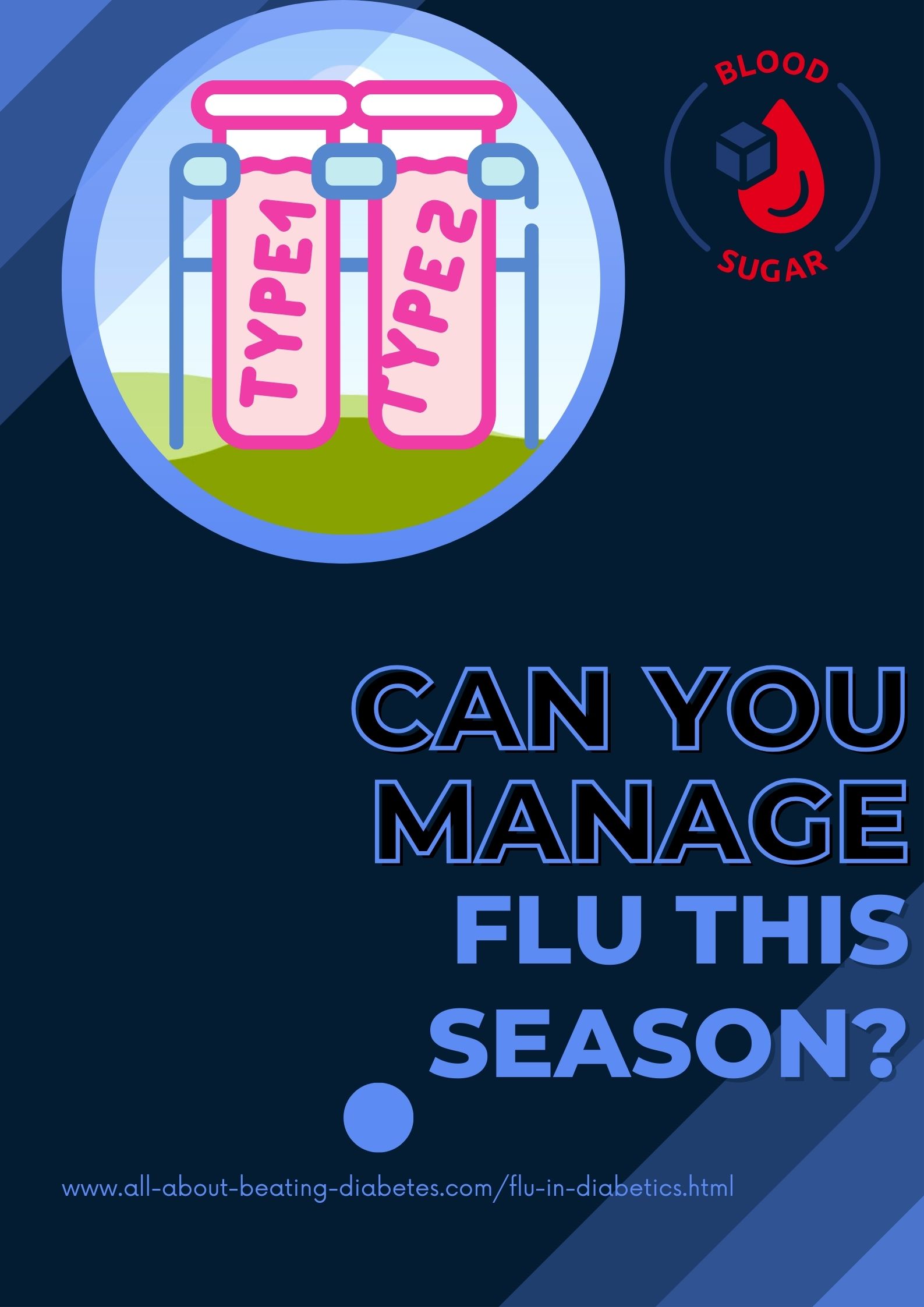Stay safe this flu and diabetes season!

It's scary for people with diabetes to think about their health when flu season starts.
If someone has diabetes, they are more likely to get really sick with the flu, which can have a big effect on their blood sugar.
That's why we are preparing this informative article on "Diabetics in Flu Season.". It will lend a hand in staying healthy and getting good care.
Why do Diabetics get flu more easily?
Diabetics of either types have weaker immune systems compared to people who don't have diabetes.
Because of this, they are more likely to get illnesses like the flu.
Because their blood sugar levels change so quickly, they are more likely to be sick and take a long time to get better after getting the flu.
Even a mild case of the flu can lead to dangerous complications like pneumonia. This makes flu season extra hard for these people.
How to Spot Flu Symptoms in People with Diabetes?
People with diabetes can have a hard time with flu symptoms because they often look like other diabetes symptoms.
For instance, people who have the flu often feel tired, thirsty, sweat a lot, and have trouble seeing. All of these signs are also normal for people with diabetes.
It's more likely that the flu will give you a high fever that rises quickly, body aches that won't go away, a scratchy throat, and shortness of breath that won't go away.
People with diabetes should be especially aware of these signs.
Ways for diabetics to avoid getting the flu
There are several things that diabetics can do to avoid getting the flu.
It is very important to maintain good personal hygiene by washing your hands often and sanitizing after using public places.
Another piece of advice is to check blood sugar levels more often. This is because when having the flu, they can fluctuate more than when not having the flu.
Choosing healthy foods, dealing with worry, and getting enough sleep are also very important parts of this plan to stay safe.
Getting a flu shot is very important for diabetics. You can't say enough good things about getting a flu shot every year before flu season starts.
How to Help People with Diabetes Get Better From the Flu
Figuring out you have the flu early and starting treatment right away can cut down on the time it takes to get better.
You should make sure you get enough rest, drink enough water, and check your blood sugar levels often.
People with diabetes are more likely to get pneumonia, so a vaccine can help them avoid getting it.
Drugs that fight viruses are also used to treat the flu (antivirals). We usually recommend them when the flu symptoms start to show.
That's why it's very important to talk to your caring doctor right away whenever you notice any of these symptoms.
It's important to get a flu shot every year, catch the flu early, and get care right away to make this flu season safer and easier to deal with.
Diabetics have higher chances of getting the flu compared to non-diabetics; that's why it's important to plan for the flu shot and get ready for it.
Giving diabetics clear instructions can help them feel more sure of their ability to stay healthy and avoid getting the flu.
Regular check-ups and follow-ups with the doctor can help people feel better and get information that is specific to their health. This can make it easier to get through flu season.
Take Home Notes:
Every person with diabetes needs to make flu season a top priority when it comes to their health.
But this annual problem can be handled well with the right medical help, a well-informed approach, and safety steps.
|
Written by Dr.Albana Greca Sejdini, Md, MMedSc Medically reviewed by Dr.Ruden Cakoni, MD, Endocrinologist |
Topic Date: 09/21/2023 |
Your second block of text...
Diabetes complications Questions or Problems? Get Help Here
This is the place where you can ask a question about any aspect of diabetes complications.
It's free and it's easy to do. Just fill in the form below, then click on "Submit Your Question".